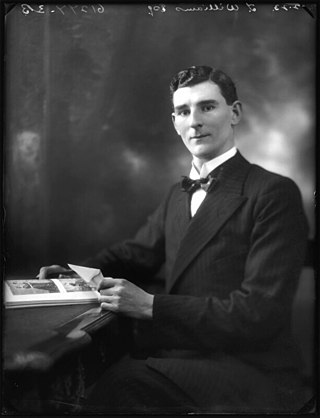Tom Williams, Baron Williams of Barnburgh
British coal miner and Labour Party politician From Wikipedia, the free encyclopedia
Thomas Williams, Baron Williams of Barnburgh, PC (18 March 1888 – 29 March 1967[1]) was a British coal miner who became a Labour Party politician.[2]

Career
Summarize
Perspective
Born in Blackwell, Derbyshire,[3] Williams grew up in Swinton in Yorkshire, and began work in 1899 in Kilnhurst colliery.[3] He became involved in trade unionism and joined the Independent Labour Party, switching briefly to the British Socialist Party during World War I before joining the Labour Party. In 1918, he was elected as a Labour member of the Bolton-upon-Dearne Urban District Council.
He was elected at the 1922 general election as the Member of Parliament (MP) for Don Valley,[1][4][5] and held the seat until he stepped down at the 1959 general election.[6]
In Parliament
In the First Labour Government, from January to October 1924, Williams was Parliamentary Private Secretary (PPS) to Noel Buxton, the Minister of Agriculture.[2] In the Second Labour Government from 1929 to 1931, he was PPS to the Minister of Labour, Margaret Bondfield.[2]
Williams first held ministerial office in Winston Churchill's wartime Coalition Government, when he was Parliamentary Secretary to the Ministry of Agriculture and Fisheries from 1940 to 1945,[2] serving under the Conservative minister Robert Hudson.[3] He was made a Privy Counsellor in August 1941.[7] In Clement Attlee's post-war Labour government, he was Minister of Agriculture, Fisheries and Food from 1945 to 1951,[2] most notably steering the Agriculture Act 1947 through the House of Commons.[8] After Labour lost the 1951 general election he was the opposition spokesperson on Agriculture until 1959.[2]
After his retirement from the House of Commons in 1959, he was created a life peer on 2 February 1961 taking the title Baron Williams of Barnburgh, of Barnburgh in the West Riding of the County of York.[9][10]
His autobiography, in which he gives an account of his life since childhood, was published in 1965 with a foreword by Clement Attlee.[11]
References
External links
Wikiwand - on
Seamless Wikipedia browsing. On steroids.
